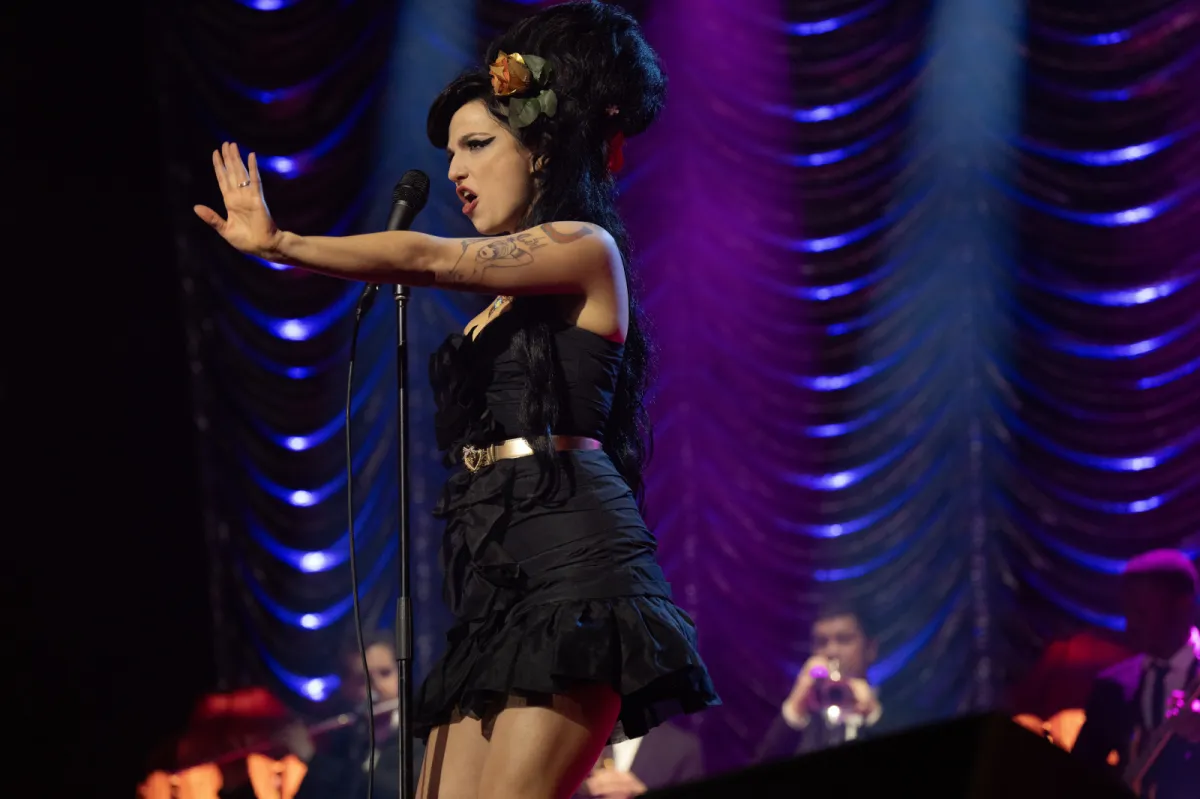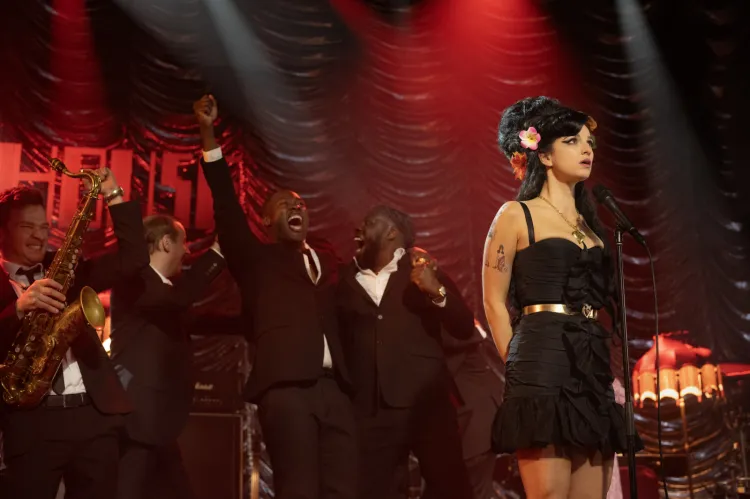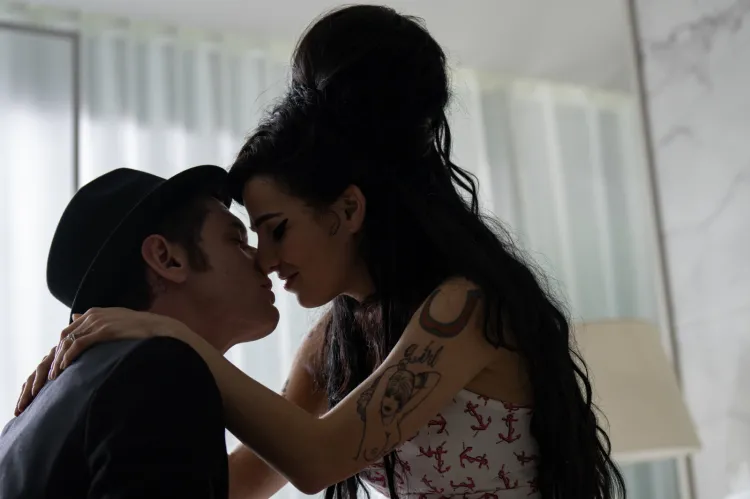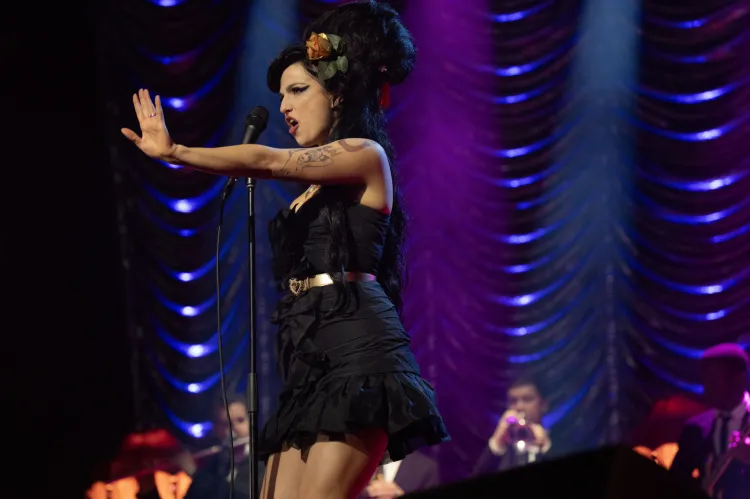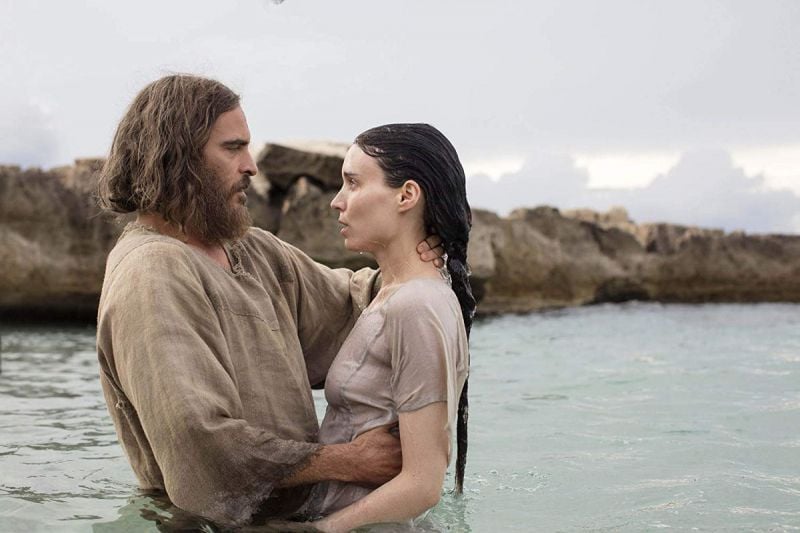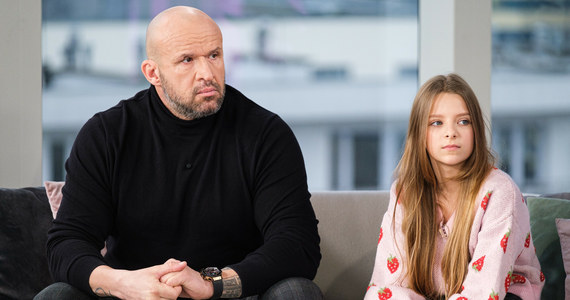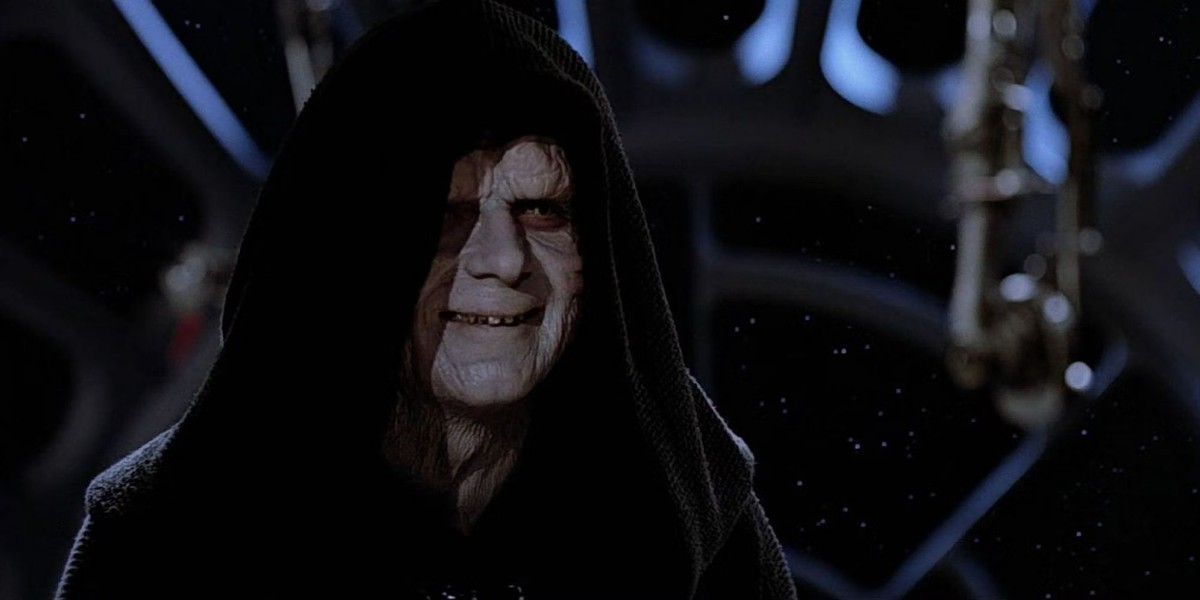“I am not and will never be another Spice Girl,” Amy confirms on screen. The real Winehouse sometimes did a lot to avoid being pigeonholed and not be a copy of anyone else. Could an artist who is sometimes desperately searching for independence and her own forms of musical expression love her cinematic biopic? It is unlikely. “Back to Black” is plain and simple Cute pop song, whose voice did not fit the tone or style of Amy Winehouse. A superficial biopic and a mediocre film that only gains value when its hackneyed clichés are brought to life with music.
Distinctively pinned hair, heavy makeup, many tattoos, small stature. This is the Amy we remember from photos, concert recordings, music videos and TV interviews. However, it was not because of his expressive and, for many, controversial image, but because of his amazing, instantly recognizable voice, that the British star became a fixture in music history.
Her songs, resulting from her fascination with jazz, soul, R&B and the sounds of the 1950s and 1960s, differed from the pop style of Beyoncé, Rihanna or Christina Aguilera. In 2008, it was these singers who received several Grammy Awards from Winehouse. Including a statuette for Best New Artist, beating out Taylor Swift.
The British artist's work, as much as her musical inspirations, has shaped her personality. The feisty and charismatic girl from Camden simply sang what was in her heart. She had many experiences, most of them unpleasant. From drinking and drug problems, through bulimia and toxic relationships, to depression, self-harm and other self-destructive behaviors. It was a deadly mixture that led to Winehouse's death from alcohol poisoning. She died aged just 27, joining the ranks of the infamous 'club' and joining icons such as Janis Joplin, Kurt Cobain and Jim Morrison.
It's a good musical movie.
It was only a matter of time until filmmakers finally paid attention to her tragic fate. In fact, preparations for a feature story about Winehouse have been ongoing for several years. Only Sam Taylor-Johnson managed to realize the project, taking on the enormous challenge that always occurs in a biography: trying to reconcile (often uncomfortable) facts with an artistic vision. The on-screen Amy had to deal with a more difficult task, ie Marissa Abella. Even before the premiere of “Back to Black”, the unknown and inexperienced actress was told that she would not be able to handle the burden of playing such an iconic character. mistake.
The actress who played Winehouse performed her duties wonderfully, and became the brightest a point The entire production. Not only did Abella master Amy's gestures, facial expressions, language and style, but more importantly, she also managed the killer task of trying to imitate the famous British woman's voice. Of course, the young actress doesn't sound the same, but her vocals reach a timbre very close to the original. The effect is more than satisfactory. You can tell how much effort the camera put into close-up shots. Sometimes, while performing Winehouse songs, Marissa Abella's face would contort unnaturally, as if she were about to collapse. You can almost feel the physical pain. This shows how special and unique Amy's voice is.
Even if Abella had to treat herself to hours of jaw massage after such vocal torture, it was worth the sacrifice. Thanks to her, all the musical scenes, from those that Amy composes at home to intimate performances in clubs and large concerts, look impressive in “Back to Black” and are in fact the only Trump card film. It is true that the actress, who now has the opportunity to expand on her role, is trying to deepen Winehouse's character, to show her as a sensitive girl involved in internal conflicts, but Marissa Abella's efforts are simply undermined by a superficial and colorless script. .
…but it's an average drama about the search for love and happiness…
“Back to Black” is simply a film immersed in mediocrity to over the top. Taylor-Johnson herself clearly did not have a specific plan for the story of her heroine, so she decided to clumsily collect many facts from Winehouse's life and rely primarily on her own dramaturgy. Because Amy's film biography is unable to produce a biography of its own. After a promising premise, dedicated to introducing the main character and charting her relationship with her grandmother (this is the only plot that is executed without generalizations and haste), “Back to Black” dangerously enters into twisted love story territory, as it romanticizes Amy’s toxic relationship with Blake Jack O'Connell screams to heaven for revenge.
Not only does the film's director try to enhance the relationship between two people struggling for mutual destruction in this bizarre way, but he also does a disservice to Amy herself by making her the heroine of a cheap romance novel. Not only does this go against Winehouse's on-screen image, it also goes against the message of most of Amy's real songs. Of course, talking about the singer through the lens of her failed relationships and portraying her as someone desperate for love and happiness is a valid concept, but Sam Taylor-Johnson has narrowed this interesting perspective down to a few clichés and overwritten exaggerations. This is what makes “Back to Black” (especially in its middle act) boring and tiring.
…and certainly not an insightful biography
The latest work from the author of “Fifty Shades of Gray” and previous John Lennon biopic (“Nowhere Boy”) fails not only as a film in its own right, but also as a biopic. Everything we see in “Back to Black” was censored by the family of the late artist, which in itself suggests that the director looks at the most unpleasant facts from Amy's life with only one eye open. Drugs, alcohol, addiction, self-harm, bulimia – all this appears in Taylor-Johnson's film, but in the background. Plus, everything bad in Amy's life has a wonderful explanation. He drinks because he is mourning the death of a loved one. She smokes crack because her husband prefers drugs to alcohol. She hits and calls names as she is surrounded by photojournalists.
This approach is typical of biographies, where an invisible protective bubble is deployed by the loved ones of the person being photographed. It was similar in the movie “Boheman Rhapsody”, where the principle “I don't do anything, everything happens to me” was used in the case of Freddie Mercury. The same is true in Back to Black, which superficializes almost all the threads of Amy's life, even omitting some (such as the heroine's relationship with her father, which is not as harmonious as it appears in the film). With what is explained here, even the Wikipedia article seems like a compendium of knowledge about Amy. Not to mention Asif Kapadia's brilliant 2015 documentary Amy.
Back to Black feels like what it was meant to be and what you'd expect: a polished, almost brilliant memorial to Amy and a tribute to her artistic achievements. If we're interested in the latter, Marissa Abella and her scenes with Lesley Manville (Grandma Cynthia) and all the musical sequences are worth watching the Sam Taylor-Johnson film. And to all the rest, echoing Amy, I say “Okay, okay, okay.”

“Amateur social media maven. Pop cultureaholic. Troublemaker. Internet evangelist. Typical bacon ninja. Communicator. Zombie aficionado.”

